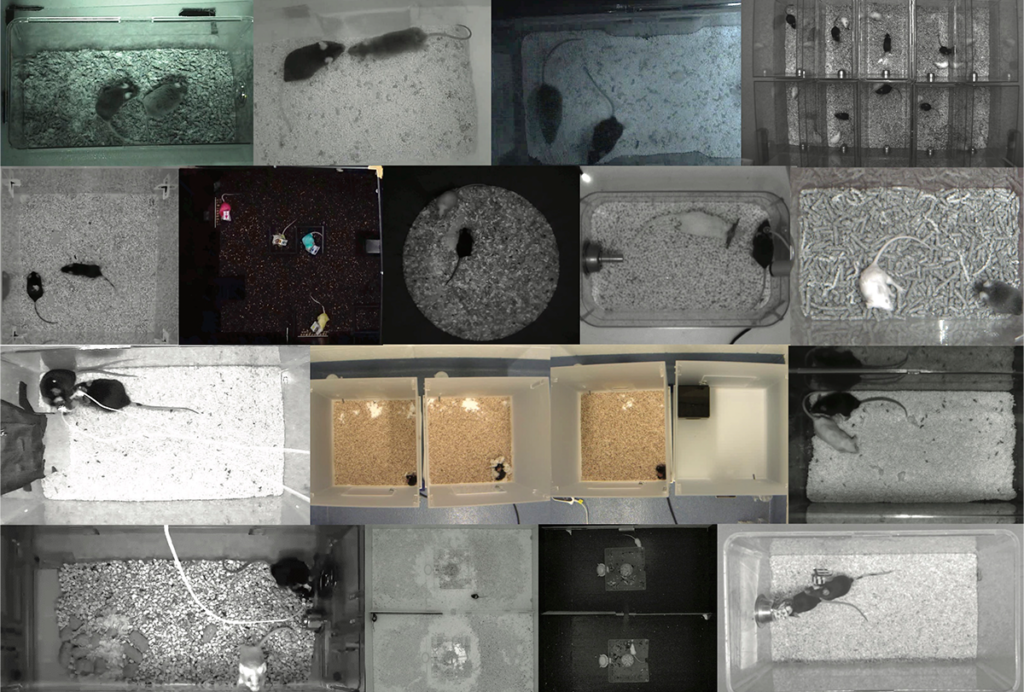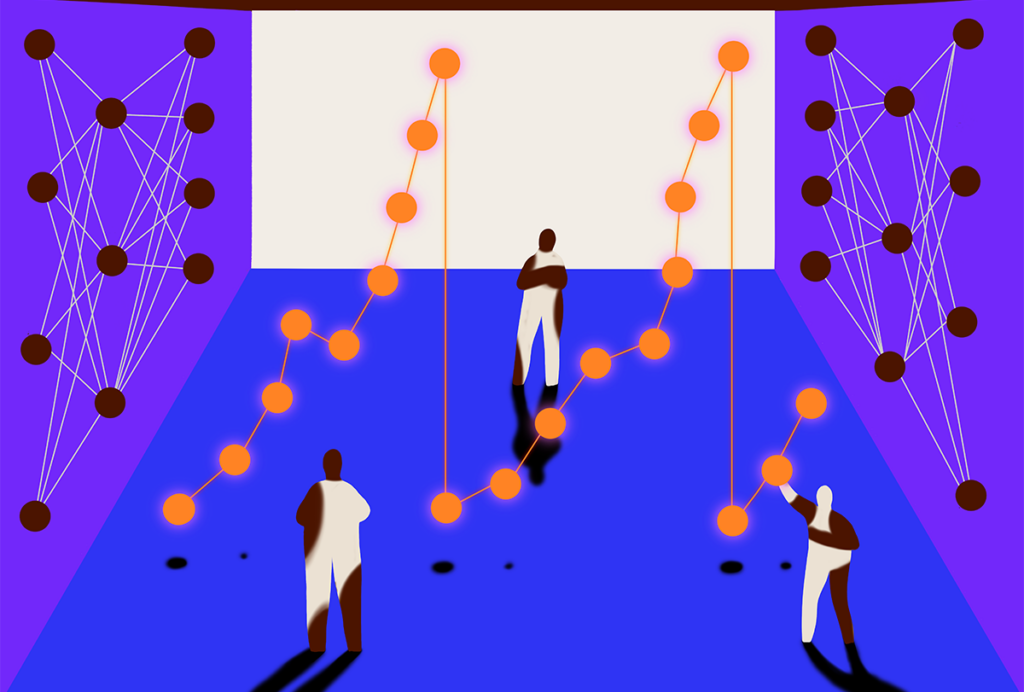Machine learning
Recent articles
Modern AI is simply no match for the complexity likely required for harboring consciousness, says Jaan Aru
He argues that our brain’s computations are of a completely different nature than any artificial intelligence because they take place across many spatial and temporal scales and are inextricably entwined with biological materials.
Modern AI is simply no match for the complexity likely required for harboring consciousness, says Jaan Aru
He argues that our brain’s computations are of a completely different nature than any artificial intelligence because they take place across many spatial and temporal scales and are inextricably entwined with biological materials.
The Transmitter’s favorite essays of 2025
Throughout a tumultuous year in science, researchers opined on policy changes and funding uncertainty, as well as scientific trends and the impact of artificial-intelligence tools on the field.

The Transmitter’s favorite essays of 2025
Throughout a tumultuous year in science, researchers opined on policy changes and funding uncertainty, as well as scientific trends and the impact of artificial-intelligence tools on the field.
Exclusive: Springer Nature retracts, removes nearly 40 publications that trained neural networks on ‘bonkers’ dataset
The dataset contains images of children’s faces downloaded from websites about autism, which sparked concerns at Springer Nature about consent and reliability.

Exclusive: Springer Nature retracts, removes nearly 40 publications that trained neural networks on ‘bonkers’ dataset
The dataset contains images of children’s faces downloaded from websites about autism, which sparked concerns at Springer Nature about consent and reliability.
Beyond the algorithmic oracle: Rethinking machine learning in behavioral neuroscience
Machine learning should not be a replacement for human judgment but rather help us embrace the various assumptions and interpretations that shape behavioral research.

Beyond the algorithmic oracle: Rethinking machine learning in behavioral neuroscience
Machine learning should not be a replacement for human judgment but rather help us embrace the various assumptions and interpretations that shape behavioral research.
What are the fastest-growing areas in neuroscience?
Respondents pointed to computational neuroscience, systems neuroscience, neuroimmunology and neuroimaging, among other subfields.

What are the fastest-growing areas in neuroscience?
Respondents pointed to computational neuroscience, systems neuroscience, neuroimmunology and neuroimaging, among other subfields.
What are the most transformative neuroscience tools and technologies developed in the past five years?
Artificial intelligence and deep-learning methods featured prominently in the survey responses, followed by genetic tools to control circuits, advanced neuroimaging, transcriptomics and various approaches to record brain activity and behavior.

What are the most transformative neuroscience tools and technologies developed in the past five years?
Artificial intelligence and deep-learning methods featured prominently in the survey responses, followed by genetic tools to control circuits, advanced neuroimaging, transcriptomics and various approaches to record brain activity and behavior.
How neuroscientists are using AI
Eight researchers explain how they are using large language models to analyze the literature, brainstorm hypotheses and interact with complex datasets.

How neuroscientists are using AI
Eight researchers explain how they are using large language models to analyze the literature, brainstorm hypotheses and interact with complex datasets.
Competition seeks new algorithms to classify social behavior in animals
The winner of the competition, which launched today and tests contestants’ models head to head, is set to take home $20,000, according to co-organizer Ann Kennedy.

Competition seeks new algorithms to classify social behavior in animals
The winner of the competition, which launched today and tests contestants’ models head to head, is set to take home $20,000, according to co-organizer Ann Kennedy.
This paper changed my life: Dan Goodman on a paper that reignited the field of spiking neural networks
Friedemann Zenke’s 2019 paper, and its related coding tutorial SpyTorch, made it possible to apply modern machine learning to spiking neural networks. The innovation reinvigorated the field.

This paper changed my life: Dan Goodman on a paper that reignited the field of spiking neural networks
Friedemann Zenke’s 2019 paper, and its related coding tutorial SpyTorch, made it possible to apply modern machine learning to spiking neural networks. The innovation reinvigorated the field.
Xaq Pitkow shares his principles for studying cognition in our imperfect brains and bodies
Pitkow discusses how evolution's messy constraints shape optimal brain algorithms, from Bayesian inference to ecological affordances.
Xaq Pitkow shares his principles for studying cognition in our imperfect brains and bodies
Pitkow discusses how evolution's messy constraints shape optimal brain algorithms, from Bayesian inference to ecological affordances.
Explore more from The Transmitter
Frameshift: Raphe Bernier followed his heart out of academia, then made his way back again
After a clinical research career, an interlude at Apple and four months in early retirement, Raphe Bernier found joy in teaching.

Frameshift: Raphe Bernier followed his heart out of academia, then made his way back again
After a clinical research career, an interlude at Apple and four months in early retirement, Raphe Bernier found joy in teaching.
Organoid study reveals shared brain pathways across autism-linked variants
The genetic variants initially affect brain development in unique ways, but over time they converge on common molecular pathways.

Organoid study reveals shared brain pathways across autism-linked variants
The genetic variants initially affect brain development in unique ways, but over time they converge on common molecular pathways.
Single gene sways caregiving circuits, behavior in male mice
Brain levels of the agouti gene determine whether African striped mice are doting fathers—or infanticidal ones.

Single gene sways caregiving circuits, behavior in male mice
Brain levels of the agouti gene determine whether African striped mice are doting fathers—or infanticidal ones.